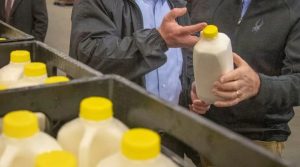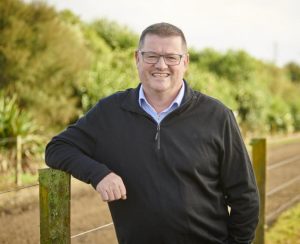
In this case, it’s the farming industry’s answer to finding an alternative to putting biological emissions into the Emissions Trading Scheme, meaning He Eke Waka Noa.
Much has been written about the 11 cents per kilogram levy as the starting point for methane – that it’s too low and that it won’t make an actual difference in curbing emissions. It is however, what farmers would be paying if they entered the ETS at a 95% discount.
That price can be adjusted, but any adjustment needs to be based on science not politics.
There’s also been the accusation of self-regulation. But that’s not strictly true. HWEN will be governed by an oversight board with people appointed to it.
This board will advise ministers and will be appointed on recommendations made by the primary sector and by the Government. That might get tightened to tip the balance in favour of more central government oversight.
There will also be an independent Māori board to ringfence the levies collected by Māori agribusiness.
The framework they have come up with makes sense. Measuring emissions at the farm gate is the fairest way to do it and rewards those who have worked hard over the years at reducing their environmental footprint.
Taxing farmers at the processor level is no better or different than the ETS.
Measuring emissions at the farm level also means it can dovetail into farm environment plans (FEPs) along with nitrogen and everything else and avoid duplication.
The good news is that dairy companies already have FEPs that record emissions. For example, Fonterra has Tiaki, Synlait has Lead with Pride and Miraka has been doing this since 2019.
These companies also get the data independently audited because they use it in the marketplace when meeting with customers to show their environmental credentials.
So, the process is further along than what people think.
The big challenge with all that will be to come up with an IT system that protects farmer privacy and company IP and commercial interests, can integrate between the different systems and provides a level of transparency so the public can track the emissions process.
Fortunately, a lot of that work is under way with a Sustainable Food and Fibre Futures Fund project headed by Trust Alliance NZ that’s looking at solving some of these issues.
Is it perfect? Absolutely not, but judging by the howls of outrage from both the environmental and some in the farming community, maybe they have the balance about right.
The big unknown will be the Government response, keeping in mind that next year is an election year and whether, faced with challenging polls, it may turn the issue into a political football.
It was just a few weeks ago that Associate Minister of Agriculture Meka Whaitiri thanked the sector for keeping the economy afloat over a tough couple of years when the Government released the latest Situation and Outlook for Primary Industries report.
In it, the primary sector was on track to reach a record $52.2 billion for the financial year ending June 30, 2022, with dairy export revenue on track to reach a record high of $21.6b, a 13% increase on the previous year.
This will no doubt play on Cabinet’s minds when it deliberates on HWEN’s fate later this year.
Fortunately, the supply-demand fundamentals in the dairy market look okay despite the recent bumps in the GDT and can help weather these and other growing input costs.
Those costs continue to prevent Northern Hemisphere competitors from cranking up production and flooding the market with product, which in turn keeps supply very tight – and keeps dairy prices elevated.
It’s seen Westpac retain its forecast at $9.25/kg milksolids and a bullish ASB lift theirs from $9.20-$10/kg MS for the new season.
Its reasoning, in its latest Rural Economic Note, is pretty simple: “It’s our view on the fundamentals (and more significantly the change in our expectations for the season’s effective exchange rate) that really matter.
“Our forecast is only lightly pencilled in and we are very early on in the season, but the end-of-season farm gate milk price looks set to wind up towards the tippy top of Fonterra’s guidance at the very least.”
That guidance saw the cooperative offer farmers $10.34/kg MS for its fixed price for June, something many would have grabbed knowing it gave them price certainty at a time of global uncertainty.

























